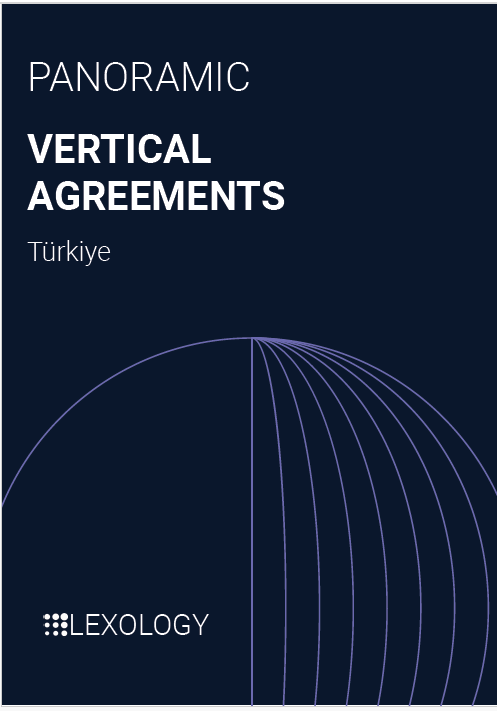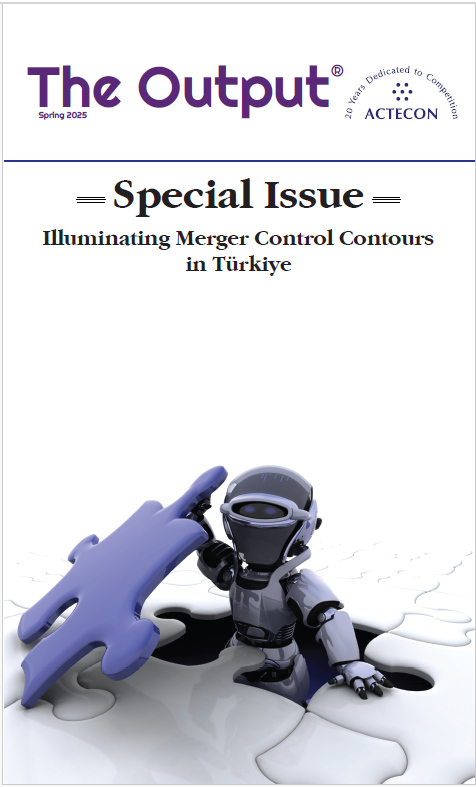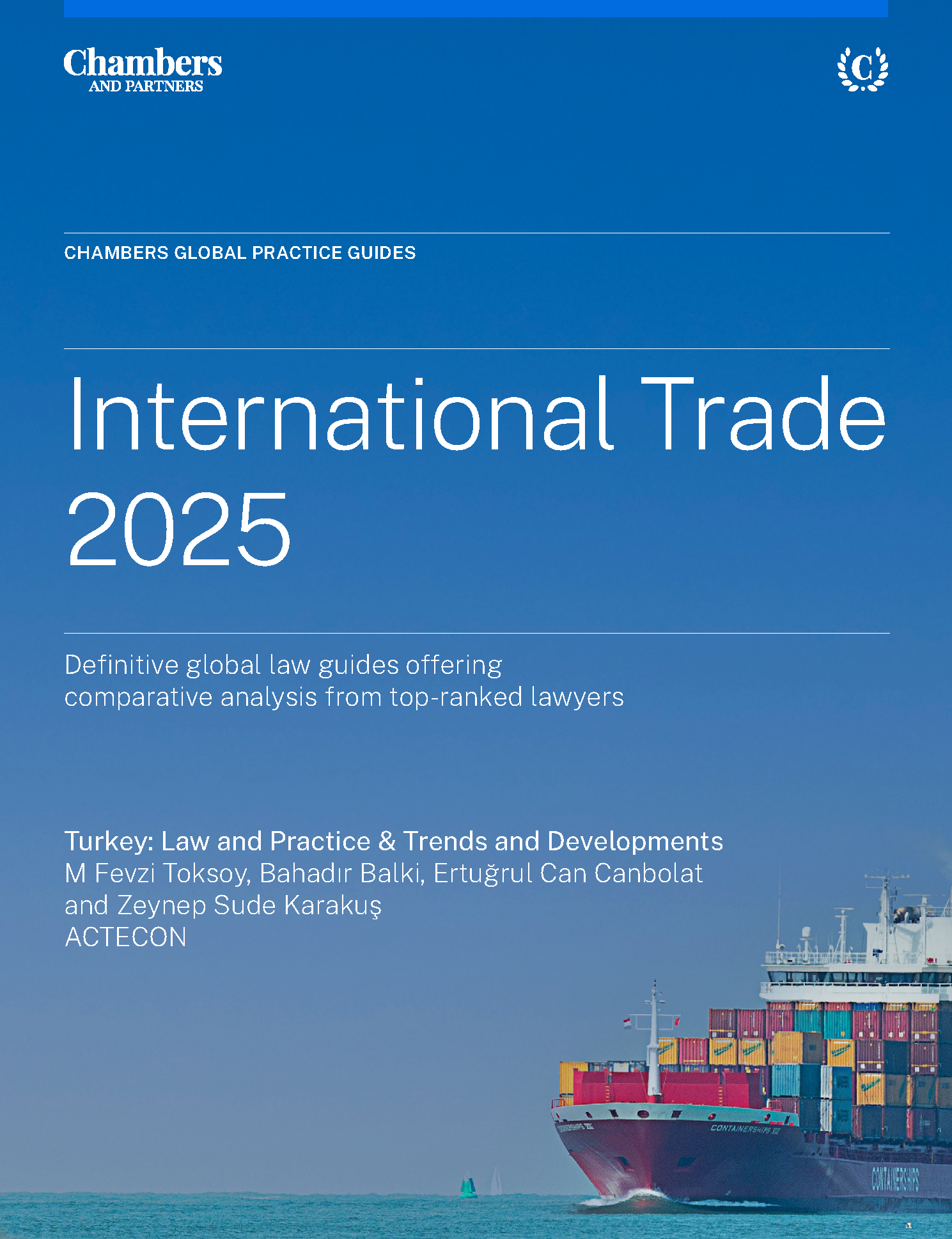Undertakings Operating in the Cosmetics Sector are under the TCA Radar
| Competition Law

The Article By Can Sarıçiçek, Özlem Başıböyük Coşkun and Berkay Ünlüsoy
Introduction
In recent years, the Turkish Competition Authority (“TCA”) has markedly intensified its scrutiny of undertakings operating in the cosmetics sector with greater frequency, predominantly based on allegations of resale price maintenance and the restriction of online sales in this industry. In most of these investigations, the relevant undertakings have admitted the violation and applied for the settlement procedure. Accordingly, upon the acceptance of the settlement applications by the TCA, a reduction of 25% was applied to the administrative fines imposed on these undertakings. Furthermore, some undertakings were also fined for hindering or complicating on-site inspections carried out by the TCA within the scope of these investigations as well as for providing false/misleading information.
Investigations initiated by the TCA into resale price maintenance and online sales restrictions have become a common practice in various sectors, i.e. food industry and cosmetics, health supplies, electronic products, small home appliances, and automotive sectors. Therefore, it can be inferred that with the rise of e-commerce and increased penetration of e-marketplaces, online sales restrictions and resale price maintenance practices are more commonly used by undertakings as measures to meet the competition to which these fiercely price-competitive online sales give rise. Even though some undertakings mainly cite the aims to protect their reputation and brand, this widespread implementation has become of a serious concern for the TCA, which focuses on these practices regardless of the sector concerned. However, in this article, our sole focus will be on recent developments in the cosmetics sector under the TCA’s aforementioned enforcement practices.
An Overview of the TCA’s Recent Decisions: RPM & Online Sale Restrictions
The TCA has investigated numerous undertakings active in the cosmetic sector starting from 2022. Most of the cases were in relation to resale price maintenance and online sale restrictions. Based on the evaluation of the findings in these investigations to be detailed below, the following common features were identified and taken by the TCA as the foundation of the violations under Act No. 4054 on The Protection of Competition (“Competition Act”):
“Selling below the catalogue price is not ethical, so the company is imposing sanctions.”
“I have now started to shut down the screens of those who sell online, and your site was the first to come up.”
“Our sensitivity to the issue stems from the fact that the fixing of prices is a situation that positively affects our success.”
“I am requesting you to raise the prices to TRY 470. I am getting the other two sellers to fix their prices, too; I urgently ask you to make the correction.”
“Could you please fix it, you have applied a 10% discount in the cart?”
Let us elaborate on those cases in more details.
In 2022, the TCA initiated a preliminary inquiry against seven undertakings[1] on the allegations of (i) resale price maintenance and (ii) restriction of online sales. Considering the findings within the scope of the file, although the TCA concluded that no grounds existed for an investigation into L’Oréal, it launched an investigation into the remaining six undertakings (“Investigation I”). During the investigation, all six undertakings admitted to the violation and applied to engage in the settlement procedure. As a result, a total fine of TRY 48,007,247.55 (approximately EUR 4.6 million)[2] was imposed on the six undertakings.
Furthermore, five of the six undertakings offered certain commitments to address the concerns regarding the restriction of online sales. These commitments, considered by the TCA as being capable of eliminating competitive concerns, were accepted. Some of these commitments are as follows:
- Suppliers will not contractually or practically interfere with or impose restrictions on the sales of any brand or product on all online channels including marketplaces.
- An explicit provision will be added to the distribution contracts stating that it is possible to sell the products via any of the online channels including marketplaces.
- A notification will be made to the entire distribution channel electronically that online sales will not be restricted.
Same year, another investigation was initiated by the TCA against five different undertakings[3] operating in the cosmetics sector based on the same allegations, i.e., (i) resale price maintenance and (ii) restriction of online sales (“Investigation II”). During the investigation process, four of the five undertakings in question admitted to the violation and applied for the settlement procedure. Consequently, the TCA imposed a total fine of TRY 4,853,405.84 (approximately EUR 460,000)[4]. Furthermore, the TCA accepted commitments proposed by two undertakings to eliminate the concerns regarding the restriction of online sales.
Subsequently, in 2023, another investigation was initiated by the TCA into 17 undertakings[5] operating in this sector based on allegations that they (i) determined the resale prices of their resellers, (ii) restricted online sales, and (iii) participated in a hub-and-spoke cartel in violation of Article 4 of the Competition Act (“Investigation III”). Ten undertakings applied for the settlement procedure for the resale price maintenance whereas four undertakings applied for the settlement procedure for the hub-and-spoke cartel. According to the announcement published by the TCA, a total administrative fine of TRY 109,545,152.86 (approximately EUR 6.3 million)[6] was imposed on 11 undertakings. Moreover, the TCA accepted the commitments proposed by seven undertakings to eliminate the concerns regarding the restriction of online sales.
Later in 2023, the TCA initiated another investigation into five undertakings[7] in the cosmetics, personal care, and dietary supplements industries for alleged resale price maintenance and restriction of online sales (“Investigation IV”). The investigation is ongoing.
Additional Penalty for Providing False or Misleading Information
Within the scope of Investigation I, a request for information was sent to Farmasi by the TCA regarding the initial date of enforcement of the Farmasi Entrepreneur Contract, Entrepreneur Workbook, and similar annexes, as well as a submission of an example of the initial versions of the mentioned documents at the time they came into effect. Additionally, information was requested on the amendments made over time to the provisions of the relevant contract and workbook, and the dates of these amendments. Within this scope, the TCA determined that:
- A certain provision, which was referred to in the e-mail obtained during the on-site inspection but was not included in the contract, claimed to be the current version in the response letter sent by Farmasi.
- A provision claimed to have been added to the contract in 2018 was found to have been present in the contract in 2017 as well, following a comparison of the obtained files and Internet archives.
- The amounts of export-purpose resales conducted by Farmasi to a reseller in 2021 were declared differently in each document submitted to the TCA.
Consequently, it was understood that Farmasi had presented false or misleading documents during the examination process and continued to present false or misleading information during the investigation process. The TCA evaluated the case within the provision of providing false/misleading information/documents under the Competition Act. It imposed an administrative fine on Farmasi for each act separately, at the rate of 0.1% of the annual gross revenues generated at the end of the fiscal year 2021.
Rejection of Request for Attorney-Client Confidentiality
During the on-site inspection conducted at Oriflame’s premises within the scope of the preliminary inquiry before Investigation IV, a copy of the findings was obtained and delivered to the company officials, and the official copy of the findings was entered in the TCA’s records. In the ongoing process, a petition registered in the TCA’s records stated that some of the documents obtained from the computer and/or mobile devices of an undertaking employee during the on-site inspection had been sent to or received by an independent lawyer. This lawyer did not have an employee-employer relationship with Oriflame, and did not appear on the payroll of Oriflame or any Oriflame subsidiary, and regardless of the date of these correspondences maintained that the documents in question were subject to attorney-client confidentiality. Thus, a request was made that these documents be returned to Oriflame.
In its assessment, the TCA stated that correspondences between an independent lawyer, who does not have an employee-employer relationship with the client, and the client, made to exercise the client’s right to defence, are protected; however, correspondences that are not directly related to the exercise of the right to defence, made with the intent to assist in any violation or to conceal ongoing or future violations, do not benefit from this protection.
It also was mentioned that, according to the file content, during the on-site inspection at Oriflame, no objection had been raised by the company officials regarding the confidentiality of attorney-client correspondences concerning the documents taken by the case handlers. It was noted that in the on-site inspection report signed by the case handlers in charge and the company officials, no mention appeared that the documents taken could fall under the confidentiality of attorney-client correspondences, nor was there any refusal to sign or any remarks made on the report. Additionally, since it was understood that the dates of the documents, which Oriflame claimed to be covered by attorney-client confidentiality, were from a date before the commencement of the preliminary inquiry against Oriflame, it was assessed that they were not made for the purpose of exercising the right to defence. Therefore, the request for the return of the documents was rejected by the TCA.
Some Undertakings Were Also Fined for Hindering or Complicating TCA’s On-site Inspections
During the on-site inspections conducted by the TCA at L’Oréal’s headquarters within the scope of the preliminary inquiry before Investigation I, although the case handlers in charge had issued a warning that no data should be deleted until the on-site inspection had been completed, it was understood that a L’Oréal employee had deleted some messages after the start of the on-site inspection using the “delete for everyone” feature on WhatsApp.
Similarly, during another on-site inspection conducted by the TCA at NAOS’ headquarters within the scope of Investigation I, a NAOS employee claimed that the mobile device presented to the TCA professionals during the on-site inspection did not contain the WhatsApp application, and claimed to have not used the WhatsApp application for a long time. However, WhatsApp messages exchanged with this employee were discovered during the examination of the phones of other NAOS employees. The TCA concluded that the actions taken by NAOS during the on-site inspection should be characterized as obstructing/hindering an on-site inspection.
Considering the above-mentioned actions, the TCA imposed an administrative fine on L’Oréal and NAOS at a rate of 0.5% of their annual gross revenues generated in 2021.
It should be also noted that even though L’Oréal escaped the investigation, it was fined for obstructing/hindering the on-site inspection.
Closing Remarks
In view of the foregoing, given the investigations carried consecutively, it is evident that in recent years, the TCA has shown increased interest in the cosmetics sector. Resale price maintenance and restriction of online sales have been the focus of the investigations conducted by the TCA in this sector. However, as mentioned above, this enforcement pattern may potentially be just a part of the general focus on all sectors against resale price maintenance and online sales restriction practices.
Online sales channels and e-marketplaces in particular have changed consumer behaviour. Increasingly, consumers favour these channels due to features such as easy access, product comparison availability, fast shipment, and better prices. The increased volume of sales within these channels attracts many sellers; however, the moment they enter into price competition with brick-and-mortar stores, practices of resale price maintenance and online sales restrictions emerge. These widespread investigations by the TCA therefore may be interpreted as a natural consequence of the traditional industries’ transitioning into the realm of online sales. Today, it may be the cosmetics sector under scrutiny, tomorrow it could be another industry. Given that resale price maintenance and online sales restriction practices can be observed in any sector during this transition to online sales channels, any sector engaging in these may draw regulatory scrutiny and find itself the focus of an investigation.
[1] Avon Kozmetik Ürünleri Sanayi ve Tic. A.Ş., Farmasi Enternasyonel Tic. A.Ş., Kosan Kozmetik ve Pazarlama ve Tic. A.Ş., NAOS İstanbul Kozmetik San. ve Tic. Ltd. Şti., Pierre Fabre Dermo Kozmetik Ltd. Şti., Yöntem Profesyonel Kozmetik Ürünleri San. ve Tic. Ltd. Şti., L’Oréal Türkiye Kozmetik ve San. ve Tic. A.Ş.
[2] In the calculation of the fine in terms of EUR, the average buying rate of exchange of the Central Bank of Türkiye for 2021 was taken into consideration as the rate of exchange. For 2021, this rate was EUR 1 = TRY 10.47.
[3] Biota Bitkisel İlaç ve Kozmetik Laboratuvarları A.Ş., Colastin Sağlık Ürünleri A.Ş., Gerçek Kozmetik San. ve Tic. Ltd. Şti., Kozmoklinik Kozmetik ve Medikal Ürünler Paz. ve Tic. A.Ş., MOT Grup Bilişim Ltd. Şti.
[4] In the calculation of the fine in terms of EUR, the average b
uying rate of exchange of the Central Bank of Türkiye for 2021 was taken into consideration as the rate of exchange. For 2021, this rate was EUR 1 = TRY 10.47.
[5] Ayaz ve Ortakları Ltd. Şti., Easyvit Sağlık Ürünleri Sanayi A.Ş. ELCA Kozmetik Ltd. Şti., Farmatek İç ve Dış Tic. A.Ş., Glohe Bitkisel Ürünler San. ve Tic. A.Ş., L’Oréal Türkiye Kozmetik San. ve Tic. A.Ş., SB Grup Kozmetik A.Ş., Sistem Kozmetik San. ve Tic. Ltd. Şti., Rebul JCR Kozmetik Paz. A.Ş., Ashley Joy Kozmetik Tic. ve San. A.Ş., Neolife İthalat İhracat A.Ş., Ege Teknoloji Kimya Mak. San. Tic. Ltd. Şti., Farmakozmetika Sağlık Ürünleri ve Kozmetik Tic. Ltd. Şti., CHI Kozmetik İthalat İhracat San. ve Tic. A.Ş., Hamzaoğlu Kimya San. ve Tic. A.Ş., Cevher Kozmetik ve Sağlık Sanayi Ticaret A.Ş., Kozmopol Kozmetik Sağlık Gıda San. ve Tic. A.Ş.
[6] In the calculation of the fine in terms of EUR, the average buying rate of exchange of the Central Bank of Türkiye for 2022 was taken into consideration as the rate of exchange. For 2022, this rate was EUR 1 = TRY 17.38.
[7] Amway Türkiye Ltd., Ersağ Organizasyon Temizlik Kozmetik Ürünleri Pazarlama San. Ve Tic. Ltd. Şti., Hunca Life Kozmetik Pazarlama Dağıtım Tic. A.Ş., Oriflame Kozmetik Ürünleri Tic. Ltd. Şti., Tiens İç ve Dış Ticaret Ltd. Şti.






